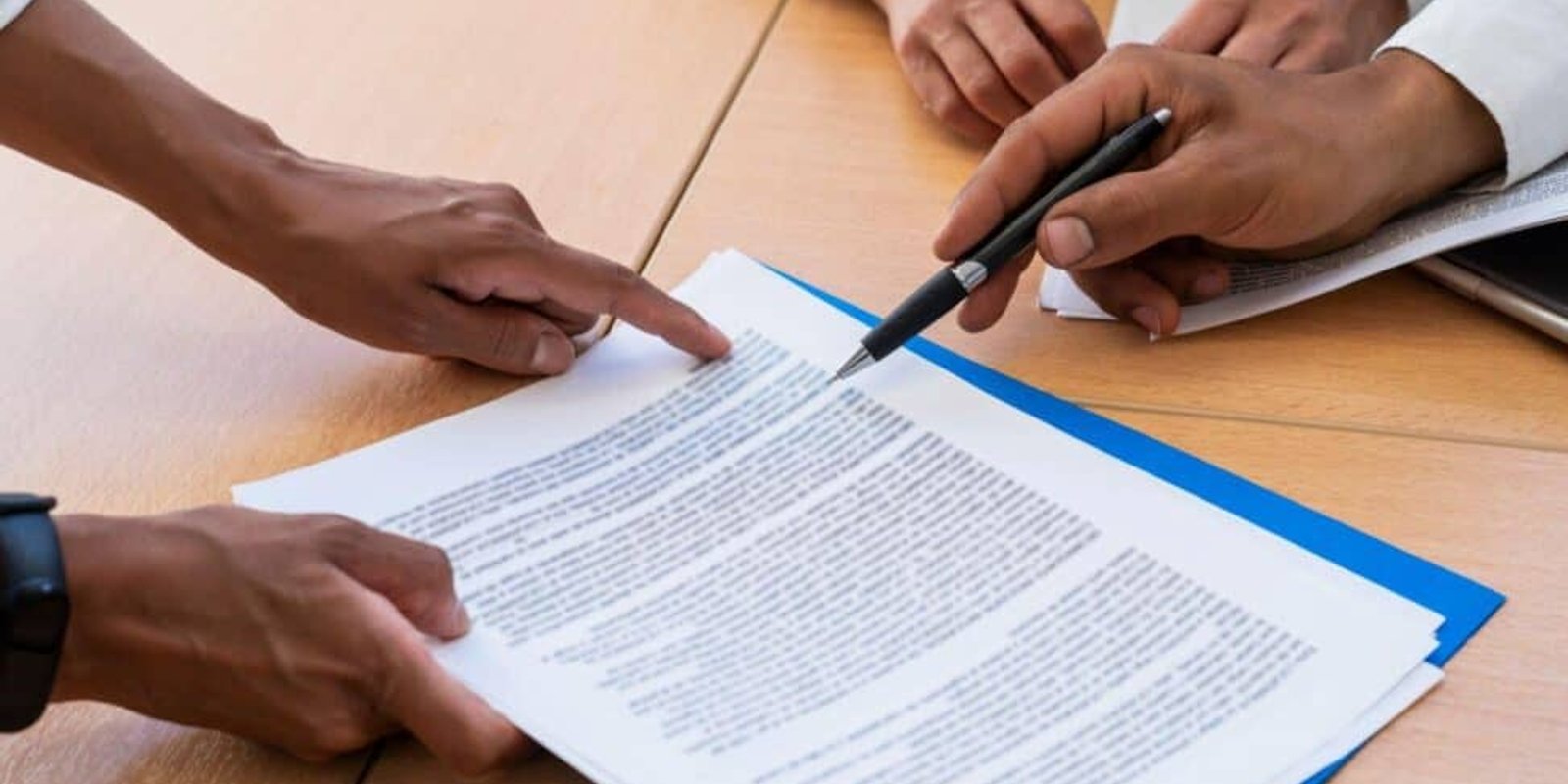Auto Accident Insurance Coverage
The injury attorneys at Phoenix Accident and Injury Law Firm near you have significant experience in helping clients deal with insurance companies and the headaches surrounding auto accident insurance coverage. Our offices are conveniently located in nearby Chandler, Peoria, and North Phoenix, and we can meet in-person at our nearby offices, [over the phone,](tel: (480) 680-8125) or video call. You can contact us for a free consultation, or read on to find out more.
By the way, we will also help with other problems that have cost you sleep, like getting a rental car very soon and finding a nearby doctor who can help you. Even the best legal team isn’t good enough if your quality of life isn’t sustainable while justice and compensation are on the way. The whole point of legal action is to regain quality of life, so we help you long-term as attorneys and short-term as your go-to people. Our familiarity with the local Phoenix courts makes us confident that we can help you get the best settlement possible.
What is the minimum coverage required for auto insurance?
Under Arizona Law, drivers are required to carry auto accident insurance coverage with a minimum of the following policy limits:
- $15,000 per person for bodily injury liability
- $30,000 per accident
- $10,000 for property damage
In short, the minimum auto accident insurance coverage should be at least 15/30/10 for Arizona drivers.
The median household income in Phoenix is significantly above the median for the whole state of Arizona. Many people here carry more than the minimum amount of auto accident insurance coverage to protect their assets in the event of an accident.
Is Arizona a Fault State?
Yes. Arizona is what’s called a “fault” state, as opposed to a “no fault” state. When it comes to auto accident insurance coverage, this means when a driver is involved in an accident, he or she has several options:
- File a claim with the driver’s own insurance carrier.
- File a claim with the other driver’s carrier, if the other driver is at fault.
- Bring a personal injury lawsuit against the other driver, if the other driver is partially or totally at fault.
The vast majority (at least 85%) of personal injury cases settle out of court. In motor vehicle injury cases, insurance companies usually fund the settlements.
When accident cases go all the way through trial, the average jury verdict nationwide for automobile accidents in 2005 was $15,000, according to the Bureau of Justice Statistics of the US Department of Justice.
What Types of Auto Accident Insurance Coverage is available?
A robust auto accident insurance coverage plan should cover the following:
- Bodily Injury Liability Insurance- Bodily injury auto accident insurance coverage is intended to cover the victim’s medical and other expenses. The minimum required coverage in Arizona for bodily injury is $15,000 per person, or $30,000 total per accident.
- Property Damage Insurance- Property damage insurance covers damage caused by the insured driver to the vehicle or other property of another person. For example, property damage insurance covers damage to the other driver’s car, to a mailbox or fence that the driver knocks over, etc. The minimum required auto accident insurance coverage for property damage mandated by Arizona law is $10,000 for each accident.
- Collision Coverage- Most drivers in Phoenix also buy collision coverage to repair or replace their own vehicles damaged from a collision. This coverage is optional if you own your car. However, if you are financing or leasing your car, collision auto accident insurance coverage is mandatory.
- Comprehensive Coverage- Comprehensive coverage may cover damages or losses caused by floods, falling trees, theft, vandalism, and other causes. This coverage is optional if you own your car. However, if you are financing or leasing your car, comprehensive auto accident insurance coverage is mandatory.
- Medical Payment Coverage- Also known as MedPay, this pays for the insured driver’s own medical bills after an accident, regardless of which driver was at fault. This auto accident insurance coverage is optional.
- Rental Reimbursement Coverage- This coverage reimburses you if you need to rent a car after an accident. This auto accident insurance coverage is optional.
- Full Glass Coverage- This reimburses you for repairs and/or replacements to your windshield, side, and rear windows. This coverage is optional. For more information about Arizona auto accident insurance coverage requirements, visit the Arizona DMV website.
Does premises or homeowner’s insurance cover injuries or damage in a car accident?
Premise coverage excludes motorized vehicles. Motorized vehicles are only covered by auto accident insurance coverage policies. However, most people in Phoenix carry homeowner’s or renter’s insurance. Most business owners also carry liability insurance. When accidents happen at someone’s home or business, generally an insurance company will be involved.
Premises accidents include slips and falls, dog bites, drowning in swimming pools, injuries due to fires and explosions, and any other accidents caused by unsafe conditions.
As with motor vehicle cases, most premises cases settle out of court. When they go all the way to a jury verdict, the median award nationwide was $98,000 in 2005, according to the US Department of Justice.
What if I don’t have auto accident insurance coverage?
As mentioned, the minimum amount of liability insurance required to meet Arizona’s Financial Responsibility law is a 15/30/10 auto insurance policy. You are required to provide proof of your insurance when you’re stopped by a law enforcement officer, or when you’re registering your vehicle.
Insurance companies are required to notify the Arizona Department of Transportation Motor Vehicle Division if you cancel or fail to renew your policy. You’re allowed to uninsure a vehicle you own that is no longer being driven.
However, if you fail to provide proof of insurance to a law enforcement officer, you can be liable for the following penalties:
- $500 fine for the first offense and a three-month suspension of your driver’s license, registration, and plates.
- $750 fine for a second offense within 36 months and a six-month suspension.
- $1,000 fine for a third offense within 36 months and a one-year suspension.
What if the other driver doesn’t have enough insurance?
Most likely, you have adequate coverage. But what if the other driver doesn’t have enough insurance? Unfortunately, an extra layer of protection in your insurance policy may be needed.
Underinsured motorist coverage insurance is similar to uninsured driver insurance. It protects you if you’re injured by a driver who doesn’t carry enough insurance to compensate you for your property damage or injuries.
One important thing to keep in mind is that your underinsured motorist policy cannot exceed the amount of your primary insurance policy. For example, if you carry $50,000 in coverage for your own negligence, you can only get $50,000 in coverage for damage and injuries caused by someone else.
If you have reason to believe the driver who hit you is underinsured, or if the other driver refuses to provide you with insurance information, and you have underinsurance protection, notify your own insurance carrier right away. Some insurance carriers have deadlines for underinsurance motorist coverage claims as short as 30 days.
How do I make a Claim Against the Underinsured Driver?
Generally, an underinsured driver claim proceeds in much the same way as any other personal injury claim involving an insurance carrier. The difference is that you’ll be dealing with your own insurance company as well as with the other driver’s insurance company.
One complication is that it may take a while for the extent of your personal injuries and your long-term prognosis to become clear. You may not know right away whether your damages will be within the limit of the other driver’s insurance coverage and whether you’ll need to seek additional compensation from your own insurance carrier.
Can I sue my own insurance company?
No. If you need to seek coverage from your own insurance carrier, and you can’t agree on an amount that you (and your attorney) think is reasonable in light of your injuries, you cannot sue your own insurance company the same way you could sue the other driver’s carrier.
Instead, you’ll need to engage in binding arbitration with your insurance company. An arbitrator—perhaps a retired judge—will hear the evidence in a more informal setting than a trial. The arbitrator will then decide whether you’re entitled to compensation from your insurance carrier and in what amount. It is almost impossible to appeal the arbitrator’s decision.
If you do go to arbitration, you are entitled to be represented by a lawyer, just as you would be if your case went to trial.
What Insurance Coverage Can Be Used for Your Accident?
Your and the other driver’s insurance companies start talking to one another as soon as they find out about the accident. You need to tell your insurance company what you need paid.
In the beginning, you will be worried about:
- Your car
- Your ability to get around
- Your injuries and your passengers’ injuries
- Medical bills
- Time off of work
- Lasting injuries or permanent conditions
All of this can be paid for if you handle insurance correctly.
Your insurance company will let you know if the other company offers rental coverage, if you need it, and whether the other driver has admitted fault.
Insurance companies tend to move slowly, so stay persistent. Find out if medical payment coverage is included in your own policy. This will help get your injuries treated as soon as possible.
How Do I Deal with Insurance Companies?
Rule number one when dealing with insurance companies:
Know the insurance companies involved in the case.
This involves doing your homework.
First, who is the at-fault driver’s insurance company? If you don’t know, check the Traffic Information Exchange slip you received at the accident scene, or check the police report.
Second, make sure the at-fault driver has insurance. The exchange slip will tell you when the driver’s policy expires. The police report will also tell you whether the driver was cited for not having insurance.
Now That You Know Who They Are, Do You Talk to Them?
No. Do not talk to the at-fault driver’s insurance.
Of course, you want them to pay for the damages their driver caused. But they will not help you as they do not represent you. The other driver’s insurance will look for ways to put the blame on you and therefore not pay for any fault. You need to think about you and let them think about their insured.
Instead, call your own insurance company and ask what they have found out from the other insurer.
If the adjuster for the other driver’s insurance calls you on the phone, do not allow them to record you. Do not answer any questions related to the accident. They can later use the recording and answers as evidence against you.
All you need to share is your name and address. If you’ve already retained a lawyer, you can also tell them your lawyer’s name and contact information.
If the claims adjuster gets pushy, feel free to hang up.
They are trying to get you to say something that would show you were partly or entirely responsible for the accident. Although they probably won’t ask you to directly admit fault, they will probe for inconsistencies between what you said, what their driver said, and what the police said.
If the case goes to a jury, which is unlikely but possible, the other side’s attorney can use these inconsistencies to cast doubt on whether the insurer’s client was really 100% at fault. This is why you should not talk to them about the accident, especially if they are recording you.
If you must communicate with them, you should do so in writing—either by fax or email. Even so, do not get involved in a discussion or share your own view about the accident. Your best bet is to hire an attorney or use your own insurance company’s representative.
When Do I Talk to the Other Driver’s Insurance Company?
Avoid or delay talking to the at-fault driver’s insurance company, at least until you know that they have admitted 100% fault for the accident.
Make sure to get their admission of liability in writing. A verbal acknowledgement will not cut it. You can ask for this in a simple fax or email. For example, you could write:
“Does [name of insurance company] accept liability for the accident involving [name of insured driver] on August 13, 2019_?”_
Once they admit their driver is 100% at fault for causing the accident, you can start talking. Otherwise, all the conversations will lead to their attempts at having you accepting some portion of fault. You don’t want that to happen.
However, you still need to be careful not to say anything that would reduce the amount of your valid claim. For example, when someone asks you, “How are you today?” your instinct may be to say, “Fine”—even if you don’t feel fine at all.
This is one reason it can be helpful to have an attorney handle your claim: to prevent you from saying anything that could hurt your case.
Negotiating with Insurance Companies
Although you can negotiate with an insurance company on your own, you may get a better result (with less stress and hassle) if you hire a personal injury attorney to do this for you.
Since these attorneys deal with accident claims and insurance companies every day, they have a good idea of what a particular claim is “worth.”
They will know whether an insurance carrier is making a lowball offer, or is pushing to settle too early before the full extent of a victim’s injuries become obvious.
Insurance Being Difficult? Let Us Help
If you’ve been injured in an accident in the Phoenix area, Phoenix Accident and Injury Law Firm can help you work with the insurance companies involved to get compensated for your injuries and damages.
In the likely event that the driver who caused your accident had liability insurance, we can handle the paperwork for your claim and try to negotiate a settlement with the other driver’s insurance company. We can also handle negotiations with your own insurance carrier if you have underinsured driver auto accident insurance coverage.
We work on a contingency basis: we don’t get paid unless you get paid.
Plus, if negotiations don’t result in a fair settlement offer, we can handle your lawsuit against the third party’s insurance carrier or the arbitration against your own carrier.
At Phoenix Accident and Injury Law Firm near you, we have more than 15 years of experience helping clients obtain compensation for their personal injuries and help sort through the headaches surrounding auto accident insurance coverage. When you’re ready to talk, please contact our office to arrange a [free initial consultation by phone](tel: (480) 680-8125) or at our Chandler office, conveniently located near you.
If you have been in an auto accident, contact Phoenix Accident and Injury Law Firm in nearby Chandler, AZ to speak with an experienced personal injury attorney. We provide personal injury legal services to clients in your area including Chandler, Gilbert, Mesa, Scottsdale, Tempe, and Peoria.











